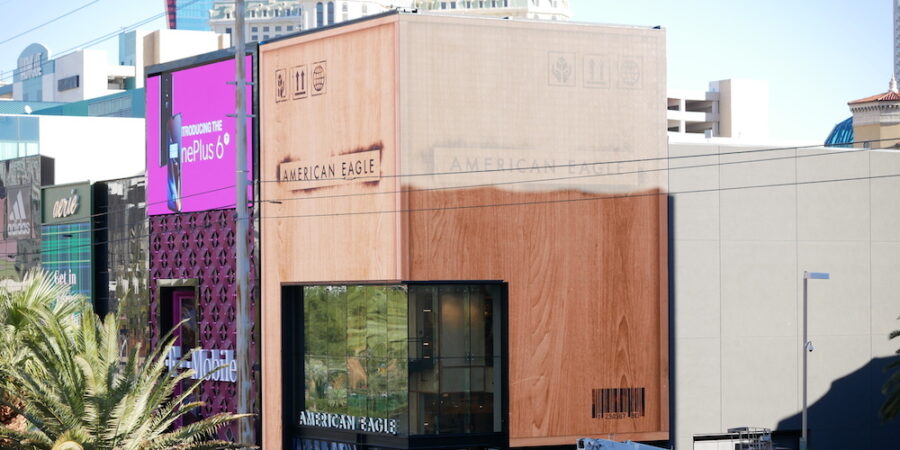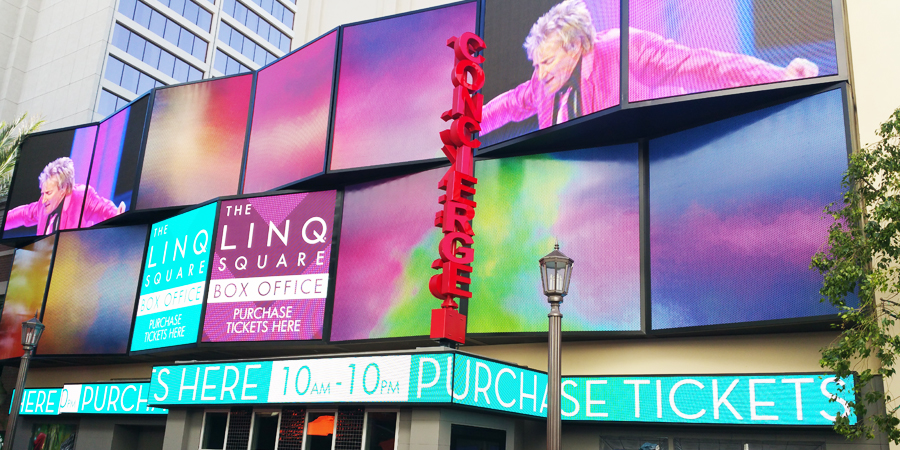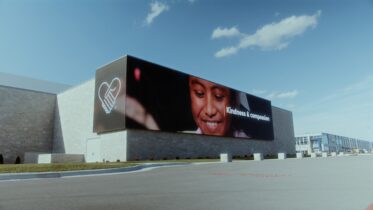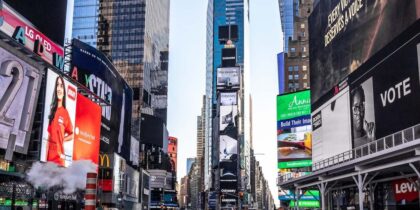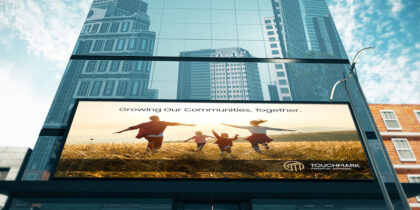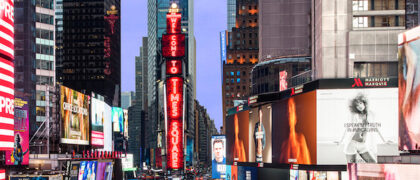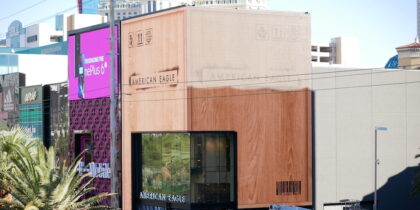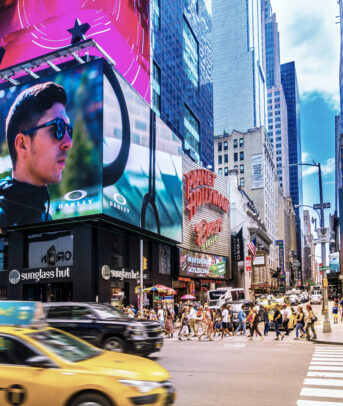By checking the current laws in digital signage, you ensure your business is compliant, and that you’re taking advantage of all advertising opportunities.
In Las Vegas, for instance, the latest update to digital signage law, Title 30 — which governs land use, zoning and development — now allows on-site display owners to sell off-site advertising.
Previously, displays located on a venue’s property, or on-site, could only advertise goods and services available at that location. But now, there are a world of possibilities for digital out-of-home (DOOH) advertising in the district. Casino and hotel owners, for example, can now sell slots to third-party advertisers.
Samsung has created countless spectacular signs in the Las Vegas district, dating back to 2002 when the company designed and built the first outdoor LED billboard in the USA. With the changes to Title 30, advertisers have more places than ever to share their messages around the city, and billboard owners have more opportunities to receive returns on their investment in digital signage.
Increased revenue for display owners
Venue owners often implement digital signage to improve upon the aesthetics of their properties, and to add that spectacular wow factor Vegas is famous for. But now, adding an LED board is more than a cosmetic upgrade to a building — it’s an investment that can add significant revenue streams for display owners.
LED installation from concept to completion
Learn how to seamlessly bring together creative and technical elements to turn vision into reality. Download Now
The ability to incur more profits from digital signage changes everything for venue owners. Not only do LED displays look stunning, but their profitability increases their value proposition to clients around the city. The conversation is no longer simply about the looks of a display, but also how the technology can be an investment.
Local DOOH advertising ecosystem
According to Title 30, at least 75 percent of messages on off-premise signs should advertise goods or services that are available within the city. This means that digital signs within Las Vegas encourage commerce within the city limits, creating a local advertising ecosystem of messages pushing visitors around the city.
This updated signage code helps larger brands with multiple locations funnel customers between properties. If businesses advertise events happening all over the city, they’ll have a greater impact on how visitors entertain themselves and spend their money during vacation.
This change is leading to more dynamic DOOH projects and partnerships between advertisers in the city. Casino and property owners are already starting to plan projects that are unique, more customized and more interesting than what regulations permitted before.
Why Samsung?
The city of Vegas took a step into the future by providing more opportunities for signage owners throughout the district to advertise and receive high returns on their investments. Often one of the most challenging parts of digital signage deployment is the permitting process because, as with most things in the public space, the city heavily regulates digital signs.
Samsung designs signage solutions with local restrictions in mind, such as the maximum brightness of displays allowed in city centers. In the LED marketplace, Samsung differentiates itself by walking clients through every step of the deployment process: from lobbying local governments, through installation and beyond.
Explore the most comprehensive direct view LED portfolio on the market today. Learn more about how you can modernize your place of business with digital signage solutions from Samsung.
